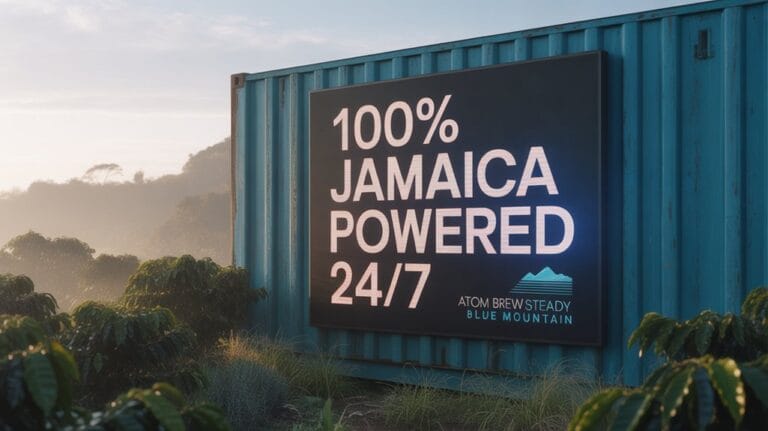Jamaica is planning to build its primary nuclear power plants using small reactors from Canada.
The deal signed in 2024 with Atomic Energy of Canada Limited and Canadian Nuclear Laboratories centers on small modular reactors. These plants, each about 100 megawatts, fit Jamaica’s small power grid. Officials say the nuclear benefits start with cutting electricity prices that now squeeze households for 11% of their income and push small businesses hard.
Coffee production, which needs steady power for drying, sorting, and export packaging, is a clear target for relief. Cheaper kilowatt-hours mean Blue Mountain Coffee farmers spend less on energy at every step from picking to overseas shipping.
Jamaica’s lawmakers must initially rewrite the 2015 radiation law that still forbids making electricity from atoms. A working team is checking nineteen infrastructure points set by the International Atomic Energy Agency.
Public meetings and plain-language explainers will run across parishes to win support. Ensuring modern safety systems across all installations is central to the public-relations effort.
Right now 90% of Jamaica’s electricity comes from imported oil and gas. When global prices jump, local farms, mills, and exporters feel it fast. Coffee processors, for example, can’t risk spikes that double drying costs overnight.
Small reactors could steady the price since uranium prices change less often than oil. Jamaica began its nuclear technology initiatives back in 1984 with a reactor at the University of the West Indies, laying a four-decade foundation for this energy expansion. Each plant would give baseload power that backs up growing volumes of solar and wind without relying on foreign oil barges.
Blue Mountain beans depend on exact climate and processing; one blackout can ruin a batch. Reliable electric dryers, sorting belts, and storage coolers powered by small reactors would protect crops and jobs in rural districts like Portland and St. Andrew.
Energy stability also protects farmers from storms that knock fuel shipments off schedule.
Canada will train Jamaican engineers and operators. In turn, Jamaica will share its experience adapting mini-reactors to tropical conditions and to small islands.
This knowledge swap aims to cut the cost gap that now makes Jamaican power twice as pricey as U.S. rates.


